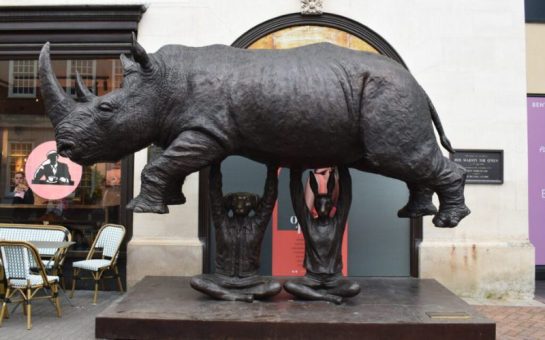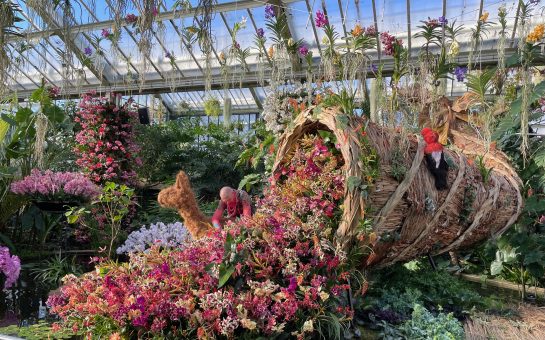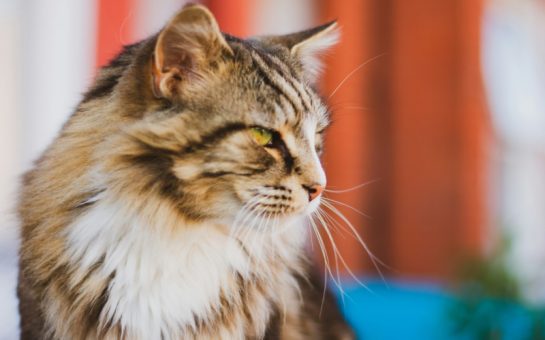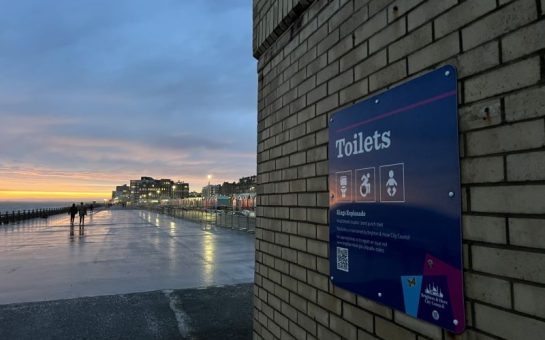May 7 2020, 07.35
Follow @SW_Londoner
Fish are returning to Venetian canals, goats have taken to the streets of Northern Wales and Cynthia the pig now roams parts of Battersea Park with room to explore.
Internationally animals are exploring empty public spaces as part of lockdown life, but there are concerns the impact on conservation is not all positive.
Jamie Baker, a zookeeper at Battersea Park Children’s Zoo described how farmyard animals such as Cynthia now have free roam of the place as the zoo has become a ghost town.
Mr Baker said: “It’s very quiet. Our parrots are still talking away even though there is no-one talking back to them.”A skeleton staff means more work than ever as keepers juggle as many jobs as they can.
“One minute we’re poo-picking and the next we’re trying to write press releases,” said Mr Baker.
And with a lack of visitors comes a lack of vital financial funding. This is not an isolated problem as this trend extends to the largest zoos in the country.
Big players like ‘conservation powerhouse’ Chester Zoo are also feeling the pinch.
Chester Zoo’s Director of Collections Mike Jordan said: “From the animal management side, life has to go on when we’re closed. From our business side though, being closed is a disaster.”
Studies from Visit Britain have shown an estimated 8.42 million people visited English Zoos and Aquariums in 2018. The anticipated drop in visitors for 2020 will affect every organisation. Chester Zoo needs visitors for 97% of their annual income and the anticipated financial disparity is causing concern for their conservation mission.
This could mean pausing most of their 66 international projects, affecting everything from elephant behaviour studies in Malaysia to protecting the Ecuador Amazon parrot and its habitat.
Chester Zoo partners with the British and Irish Association of Zoos and Aquariums (BIAZA) who are concerned that a global lockdown could interrupt animals being reintroduced into the wild.
BIAZA’s chief executive officer Dr Madelon Willemson said: “We contribute to field conservation support, over 800 projects, and with zoos not getting our primary source of income, the support to these projects is going to be challenged.”
As well as breeding and conservation Dr Willemson is worried about the increased risk of poaching for items such as rhino horns, along with the missed opportunity to educate the public on these matters. Poaching remains an issue even though the majority of the world is under lockdown, as rhino horns are considered more valuable than gold.
Rhino 91, a South African non-profit emergency transport for rhinos, has reported incidents nearly every day since their lockdown started.
Mr Jordan added: “The lockdown tends to affect people who are acting legally, more than it does people acting illegally. So, we are concerned that some of the lockdowns around the world in Kenya, Tanzania and South Africa is leaving them open.”
We’re missing your AMAZING pics.
— Chester Zoo (@chesterzoo) April 17, 2020
So, tweet us the last photo you took at #TheZoo with your phone (no cheating!) 😆
Here’s ours… GO! 📸📱 pic.twitter.com/hxYofE1gTw
In lieu of a cure for COVID19, traditional Chinese medicine (TCM) promotes the benefits of animal products such as bear bile. Many illegal methods used to obtain these materials are considered to be inhumane towards these animals.
Some TCM treatments have even been sanctioned by the Chinese government, and there are further concerns organisations like the BIAZA will struggle to influence governments towards sustainable behaviours while in lockdown.
Thankfully, online efforts mean that zoos can still educate the public on the risks that continue to threaten animals.
British Zoos are going online to educate the public on everything from breeding patterns, to protecting ecosystems from eradication.
Through this virtual experience families can learn about the work that zookeepers do behind the scenes, while continuing to engage with the public for life after lockdown.
The government has recognised the financial difficulties facing zoos and has said they will provide financial support to those across the country.In the meantime, the best thing the public can do is to donate to our local zoos, supporting their conservation work and ensuring the survival of many species.
Dr Willemson said: “If people want to do something, support a zoo that they love, or a species that they love, that is a great help.”
This can be through donations to ensure animals like Cynthia the pig are well fed, or via international animal adoption.
While we don’t know what type of world we will emerge to see, it would be a tragedy to see that this lockdown results in zoos closing or worse, the extinction of some species.




